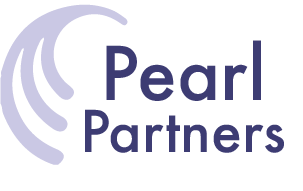I enjoy the weekend edition of the Financial Times, part of which is Tyler Brule's weekly column. A few months ago, something started to catch my attention. It appeared that Brule's publication, Monocle, is doing quite well. It is a lifestyle magazine, and has an associated website with audio reports in addition to the printed publication, and even a recently launched retail concept. There is no user generated content, and it is obvious that everything, from the website, to the audio reports, to the physical publication itself, are very well produced. That's not cheap. So what is Brule doing that allows him to be successful by going against the current wisdom in the industry?
To satisfy my curiosity, I did a quick search and found an interview with Brule in the Austrailian WSJ that sought out my very question. What I learned was quite revealing. While there are several factors responsible for his success, what stood out for me was his statement that they don't do any research at all, and that he doesn't believe in it. He then described what research was to him, and it consists of using focus groups to decide what the cover should be, or other specific executional details. Later, however, he talked about how he spends time with consumers in the shop, just having a chat with them. He also mentioned that he watches what magazines business people are buying in the airport, and then how he observes what people are reading on the plane. From reading his weekly column, you can also see that he is spending the bulk of his time immersing in his market. He maintains a grueling travel schedule, and makes sure his reporters and correspondents are in the places they are covering. He then mentioned that they did use a readership survey to confirm some of their assumptions about their readers' habits. It was not to learn what features they might like.
Like most business people, Brule has a very narrow definition of what research is. Unlike most business people, he knows that research as he defines it is not going to help him to connect with his market and deliver the experience they are seeking but cannot define. From my perspective, Brule executes brilliant research. He does whatever is necessary to connect with his market, and fully understand what is driving their decisions. He knows that it is his responsibility to deliver an experience that will connect with this consumer, and he does not expect them to ask for it. He also knows that there is greater value in delivering an experience that the consumer wouldn't think to ask for, but suits them perfectly.
What can be learned from his success? There is little to be learned from the execution, as what he is doing is right for his market, and would probably not work for say, the New York Times. What can be learned is that he is ignoring current consumer, industry, and economic trends, he's learning what is driving his market, and he's delivering a series of products to satisfy their needs in a way that his industry competition has not.
Is your company using research this effectively?

This is a fascinating post Ellen. I wonder if Brule’s research is so effective because his market is people just like him. In other words, he produces a magazine he would like to read and merchandises things he would like to buy.
Great point JD. I’ll get into more detail in my next post, but my short answer is this. Even if he is part of his target market, he is still not relying on his own opinion from behind his desk. He’s constantly immersing and learning from them.
For me, the other important issue is how he translates lifestyle into the right products and services to fit into that lifestyle. More on that next.